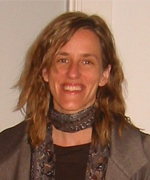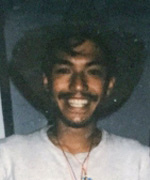Devotion to the Guru, Loyalty to the Nation
Riga Shakya, doctoral student in history at Columbia University, looks at the relationship between history and literature and the making of an inner Asian empire, specifically the early Qing expanses into the Tibetan plateau. By considering autobiographies, biographies, and key historical sources of this period, Riga explores the “language of loyalty” and the role of lay elites in articulation of the relationship between empire and subject populations. Holly Gayley (University of Colorado, Boulder) extrapolates on the theme of “language of loyalty”, drawing attention to pop music of the twenty and twenty-first centuries that illustrates embodied acts of devotion through the expression of song. Both approaches stimulate and sustain consideration of different aspects of the orientation of faith, and contribute to the development of our ways of thinking about this important topic, while drawing attention to the rich field of Sino-Tibetan relations.
Event: Lotsawa Translation Workshop – Breakout Session
Date: October 8, 2018 – 11:00 am
Speakers: Holly Gayley, Riga Shakya
Topics: Tibetan Language, Translation, Transmission

Holly Gayley
University of Colorado, Boulder
Holly Gayley is Associate Professor of Buddhist Studies at the University of Colorado Boulder. With a passion for translation, her research examines the revitalization of Buddhism on the Tibetan plateau since the 1980s with a special interest in issues of gender, agency and identity in contemporary Buddhist literature by Tibetan masters and cleric-scholars. She became interested in the academic study of Buddhism through her travels among Tibetan communities in India, Nepal, and China, and completed her M.A., in Buddhist Studies at Naropa University in 2000 and Ph.D. at Harvard University in Tibetan and Himalayan Studies in 2009. She is author of Inseparable across Lifetimes: The Lives and Love Letters of the Tibetan Visionaries Namtrul Rinpoche and Khandro Tāre Lhamo (Shambhala, 2019) and Love Letters from Golok: A Tantric Couple in Modern Tibet (Columbia University Press, 2016) and co-editor of A Gathering of Brilliant Moons: Practice Advice from the Rimé Masters of Tibet (Wisdom Publications, 2017). Her articles on an ethical reform movement spearheaded by cleric-scholars at Larung Buddhist Academy in Serta include "The Compassionate Treatment of Animals: A Contemporary Buddhist Approach in Eastern Tibet" (Journal of Religious Ethics, 2017), "Controversy over Buddhist Ethical Reform: A Secular Critique of Clerical Authority in the Tibetan Blogosphere" (Himalaya Journal, 2016), "Non-Violence as a Shifting Signifier on the Tibetan Plateau" (Contemporary Buddhism, 2016 with Padma 'tsho).

Riga Shakya
Columbia University
Riga Shakya is a PhD candidate in Sino-Tibetan history in the History-East Asia Program at Columbia University. His interests broadly span classical and contemporary Tibetan literature and the history of Sino-Tibetan relations. Riga’s doctoral research centres on the emergence of Tibetan political biography during the Qing period, with particular attention to the literary works of the Tibetan cabinet minister and polymath Dokhar Tsering Wangyal (Mdo mkhar tshe ring dbang rgyal). He is currently working on the first English language translation of Dokhar’s autobiography Reflections of a Cabinet Minister (Bka’ blon rtogs brjod). Riga holds a BA in East Asian Studies and Religious Studies from the University of Toronto, and a certificate in Tibetan Language and Culture from Tibet University, Lhasa. He is also an avid translator of contemporary Tibetan fiction and poetry.
